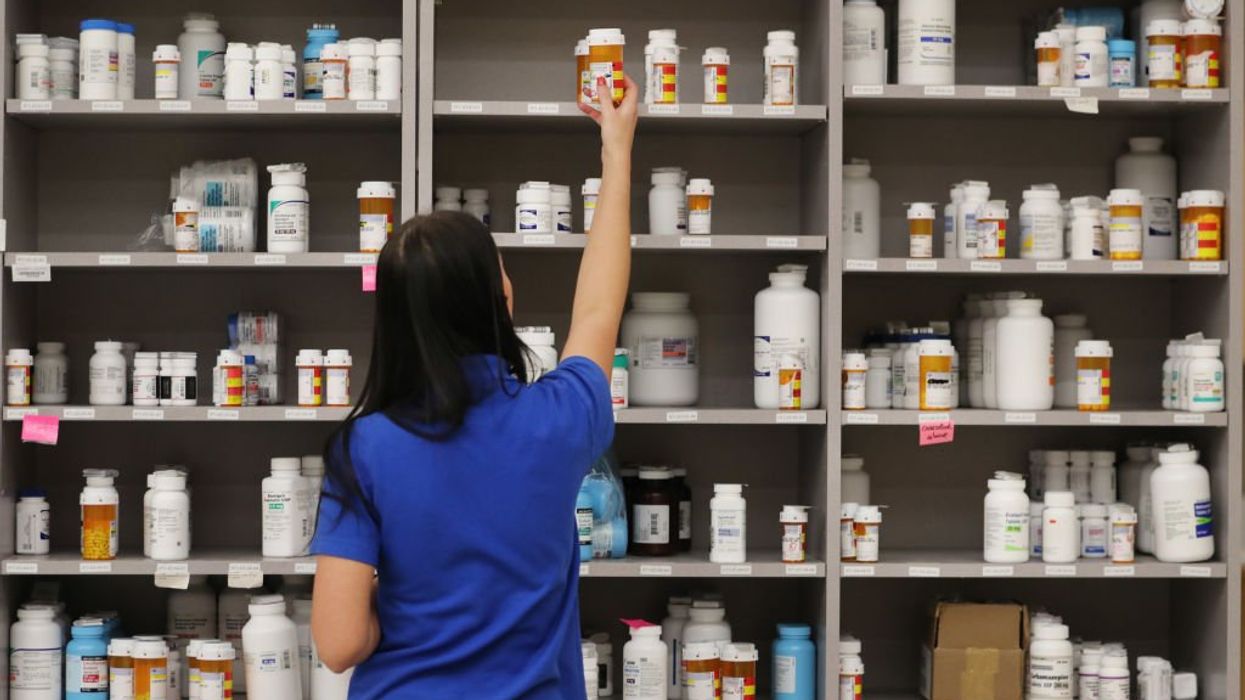
Photo by George Frey/Getty Images

The first-ever drug designed using a generative artificial intelligence system recently started human clinical trials.
Insilico Medicine, a biotechnology company dedicated to "transforming drug discovery and development with artificial intelligence software," announced yesterday that the first AI-discovered and AI-designed drug is now being tested on human volunteers.
The drug, currently referred to as INS018_055, entered Phase 2 clinical trials to treat idiopathic pulmonary fibrosis, a chronic lung disease that can cause progressively debilitating breathing problems.
During the 12-week trial, the drug will be administered orally to candidates. The study will evaluate the drug's safety, tolerability, and efficacy.
There are currently two treatment options for IPF, neither of which slow gradually worsening symptoms nor do they reverse damage or stop the progression of the disease, Insilico Medicine CEO Alex Zhavoronkov told Fox News Digital.
"There are very few options for people with this terrible condition, and the prognosis is poor — most will die within two to five years of diagnosis," Zhavoronkov added. "Our initial studies have indicated that INS018_055 has the potential to address some of the limitations of current therapies."
According to Insilico, generative AI sped up the drug discovery process and significantly reduced costs. The company estimated that traditional methods would have cost over $400 million and taken six years. However, using generative AI allowed Insilico to achieve the same result for one-tenth of the cost in one-third of the time, NVIDIA reported.
"This first drug candidate that's going to Phase 2 is a true highlight of our end-to-end approach to bridge biology and chemistry with deep learning," Zhavoronkov said. "This is a significant milestone not only for us, but for everyone in the field of AI-accelerated drug discovery."
Zhavoronkov told the Financial Times that generative AI could substantially increase the medical industry's productivity, calling the drug not only a test of Insilico but a test for AI.
"Our company, and it's a big, bold claim, can double the productivity of pretty much every big pharma company," he said.
Zhavoronkov explained to Fox News Digital that there are four phases to getting a new drug to market.
"First, scientists have to find a 'target,' a biological mechanism that is driving the disease, usually because it is not functioning as intended," he stated. "Second, they need to create a new drug for that target, similar to a puzzle piece, that would block the progression of the disease without harming the patient."
Generative AI assisted Insilico with discovering a new target and generating a new molecule by quickly analyzing massive quantities of data.
For the third phase, the drug is tested on animals, then on human volunteers. After the drug passes those studies, it can be tested on patients.
"If those tests show positive results in helping patients, the drug reaches its fourth and final step — approval by the regulatory agencies for use as a treatment for that disease," Zhavoronkov said.
Like Blaze News? Bypass the censors, sign up for our newsletters, and get stories like this direct to your inbox. Sign up here!